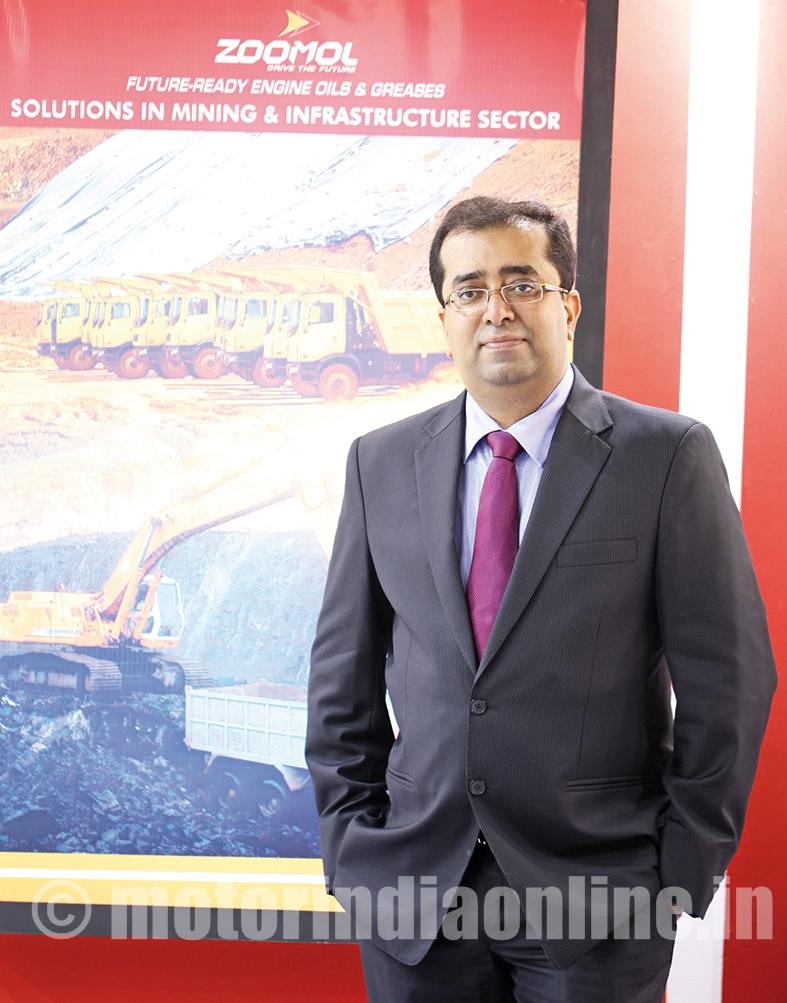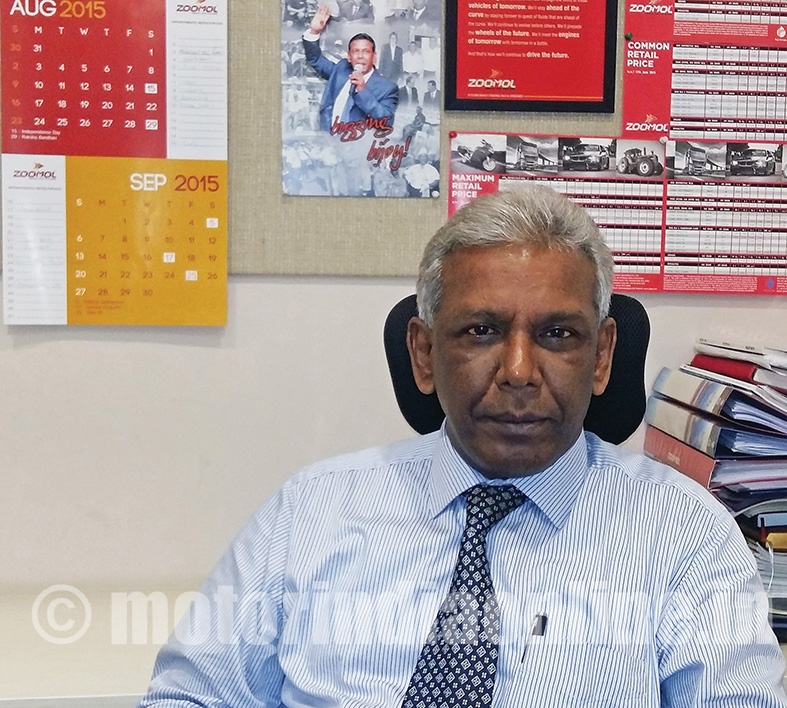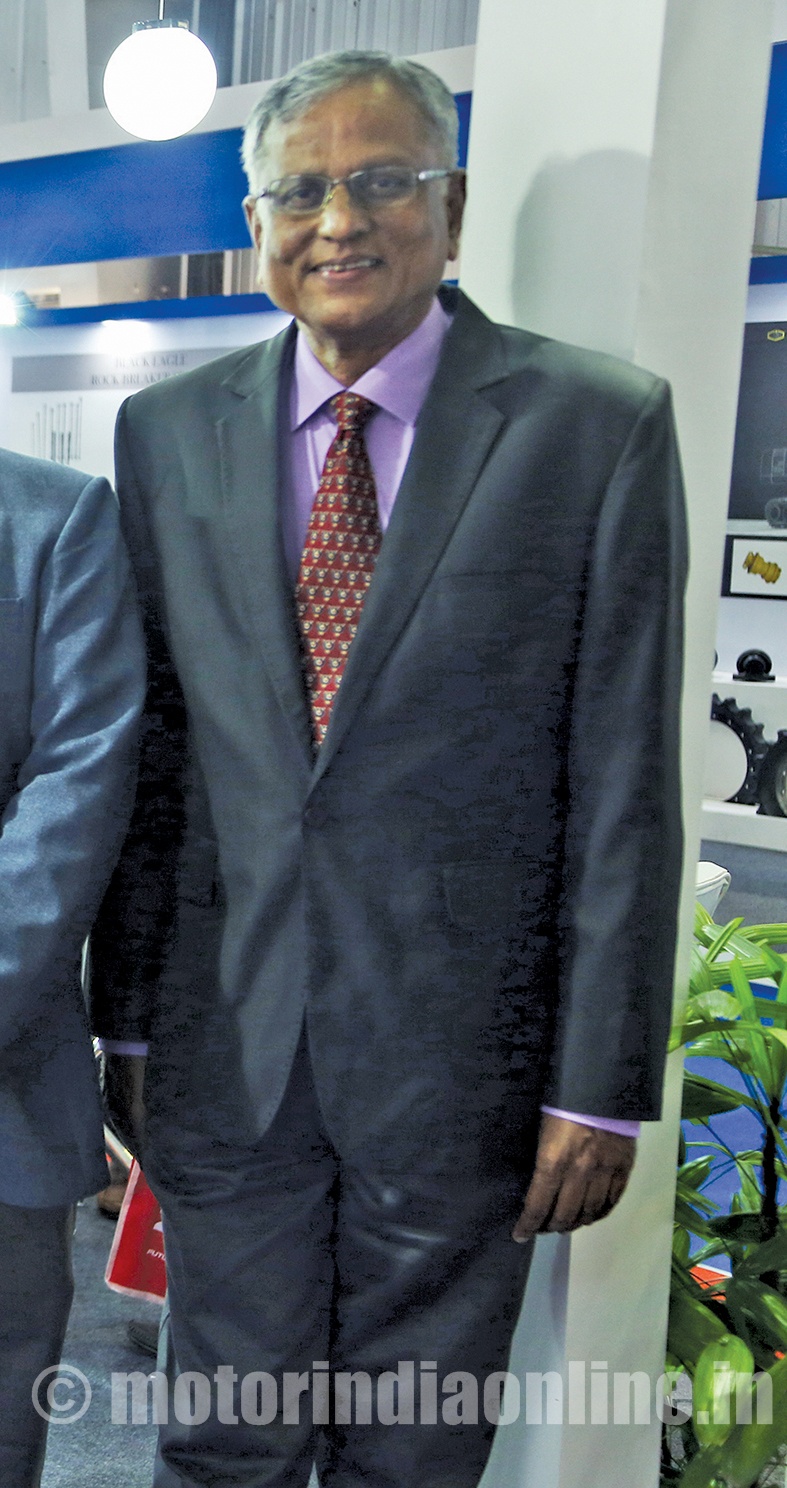Zoomol, the retail automotive arm of Raj Petro Specialities Pvt. Ltd., is gearing up for future emission challenges in the country as it works on BS VI-compliant products to add to its existing range of well-accepted lubes that are sold across the country. We spoke to Mr. Vinit S. Asher, Director, Mr. Bijoy Paul, Country Head, Sales & Marketing, and Mr. N.C. Sekharan, VP – Direct Business, Raj Petro Specialities Pvt. Ltd., for details.

Excerpts:
How has business been for your company so far this year? How do you see the rest of the year unfolding?
Bijoy Paul: The plentiful monsoon witnessed across the nation this year has created a productive agricultural season resulting in a push to the overall sales of lubricants, particularly in the agricultural tractor and commercial vehicle segments. On the other hand, the motorcycle segment has been growing at its own steady pace resulting in an upward trend in sales of 4-stroke engine oils. The first half of the year had been quite encouraging for the Zoomol brand with a volume growth of about 40% over the previous year. The motorcycle and agricultural tractor segments were the major contributors of this growth. We expect steady growth in the second half of the year. In order to boost the volume growth, we have introduced a new “Silver Line” product range targeted at the rural and semi urban markets.
With the recent introduction of new products such as API SN Synthetic Oil in 5W-30 and 5W-40 viscosity grades, we expect growth in our passenger car motor oils segment. These newly introduced synthetic products will also help in achieving improved fuel economy and lower carbondioxide emissions, thus supporting the BEE Regulations on Fuel Economy which comes into effect on April 1, 2017.
Could you list down the top three factors you feel gives you an edge over competition in the lubricants space?
Bijoy Paul: The major thrust of Zoomol has been to provide customers with consistent quality, customer satisfaction and product performance. Our focus on quality, product, packaging and customer satisfaction have given us a significant lead over competition.
What is Zoomol’s reach in terms of distributors and retail presence today? How do you plan to expand further in this regard?
Bijoy Paul: Zoomol is now present and available across the country, except in West Bengal, North-East, Punjab, J&K and Himachal Pradesh. We are planning to cover these gaps and launch Zoomol in all these States during 2017. Presently we operate through depots located in each State, catering to about 100 distributors and dealers with a retail penetration of about 12%. We are on the growth path and are actively involved in increasing the distribution channel both the primary and the secondary. A dedicated and well trained sales team manages the sales operations, backed by a strong Marketing and Technical Team.

Do you think the market will switch over to BS VI by 2020? Given the magnitude of the leap and the increased demands from the lubricant makers, how ready are you for the challenge and how confident are you about your prospects?
Vinit Asher: The industry does not expect any major changes in the implementation schedule of Bharat Stage VI across the country by April 1, 2021, as promulgated in the Gazette of India. The growing concerns about the worsening air quality over several large metros support the need for an on-time implementation of the Bharat Stage VI exhaust emission norms. While the OEMs are busy working on their new engine prototypes, the oil industry is investing heavily in upgrading their refineries to produce the required superior quality Euro VI diesel fuel.
After-treatment devices, the hallmark of Euro-VI technology dictate the use of very high quality lubricants with very well defined chemical limits. Many of the existing products in the Indian market might not meet some of these requirements. Zoomol is now actively involved in the process of creating a new range of DEO and PCMO products, which are fully compliant with Euro VI limits and can ensure the durability of the after-treatment devices and offer good engine performance. Our brand motto of “Drive The Future” with “Future Ready Engine Oils” drives this effort. We have already pioneered a number of “low SAPS” products, some of which have already been approved and listed by global OEMs such as Volvo and Daimler. Some of these products are already undergoing field evaluation on Indian roads.

Where are your products made and what kind of capacities/volumes do you do annually? Any expansion plans on the anvil?
Vinit Asher: Raj Petro Specialities owns two state-of-the-art blending plants located at Silvassa and Chennai, certified with ISO 9001:2008, ISO 14001:2004 and OHSAS 18001:2007. The combined production capacity of the two plants is approximately 300,000 kl per annum. Dedicated Laboratories with ISO 17025 certification and NABL accreditation form the backbone of these plants, which produce high quality lubricants and other speciality products. The state-of-the-art R&D Centre (CSIR approved) supports new product development and innovation. The plants manufacture various products being marketed by the six SBUs of the company, such as automotive lubricants under the brand name Zoomol, transformer oil, rubber process oil, white oil, petroleum jellies and industrial lubricants. Presently the Zoomol range of automotive lubricants is manufactured at our Silvassa plant. With the growth we are currently experiencing in the markets of the South, we are looking at the possibility of manufacturing Zoomol products also at the Chennai plant in the future.
How do you see the Indian market unfold in terms of growth and technology adoption in the medium- to long-term, say 3 to 5 years’ time-frame? What major developments could we expect from Zoomol during this period?
N.C. Sekharan: The two critical market drivers for engine oils during the next three years will be:
- a) The Bureau of Energy Efficiency (Ministry of Environment and Forests) CO2 emission norms for all passenger cars coming into effect from April 1, 2017, with imposition of punitive levies based upon CAFE.
- b) The Government Gazette Notification of March 2016, directing the compulsory adoption of Bharat Stage VI (Euro VI) for all on-highway vehicles across India from April 1, 2020.
While (a) is likely to influence the choice of low viscosity engine oils such as 5WXX and 0WXX for passenger cars in order to gain fuel economy and thus reduce CO2 emissions, (b) will dictate the use of low SAPS diesel engine oils required to protect expensive after-treatment devices required to be deployed to meet Euro VI.
In short, most of the popular passenger car and heavy duty engine oils sold today will not be suitable for the new vehicles in the next 3 to 5 years. New technology lubricants will need to be developed, tested and marketed to meet the completely different needs of the new vehicles.